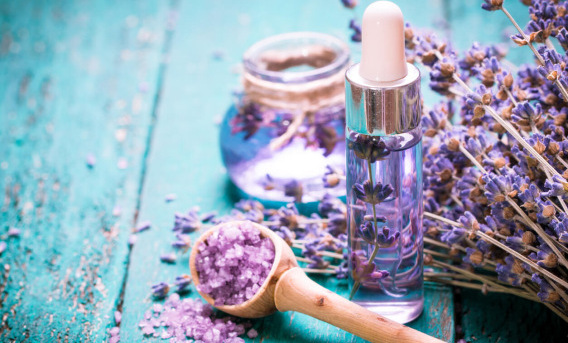Part 2: Can Medicinal Plants Safely Help With Anxiety?
Health & WellnessWritten by Tejal Parekh, RDN, LDN | Edited By Amy Edel

This is Part 2 of a two-part series looking at ways to help mesothelioma survivors manage their anxiety symptoms. Part 1 explores medication options and therapy.
Many people also have questions about the safety and efficacy of complementary therapies. For some mesothelioma survivors, herbal treatments seem like a preferable route as they’re seen as more natural and believed to therefore be less likely to cause any serious side effects.
However, as the U.S. Food and Drug Administration explains, there can be concerns with supplements as well. Ask your doctor about independent safety certification organizations’ marks on supplements to look for, such as those from non-profit NAF.
Many supplements contain ingredients that can have strong effects in the body. …some supplements can interact with medications, interfere with lab tests, or have dangerous effects during surgery. …The FDA does NOT have the authority to approve dietary supplements for safety and effectiveness, or to approve their labeling, before the supplements are sold to the public.” – FDA
The agency explains further: “Since companies can often introduce a dietary supplement to the market without notifying the FDA, the agency’s role in regulating supplements primarily begins after the product enters the marketplace.”
Before taking any supplements or trying an alternative treatment, speak with your mesothelioma specialist. Ask about possible interactions, risks and potential benefits and how medicinal plants may play a role in alleviating anxiety or stress.
Lavender Oil
Lavender oil is obtained from lavender flowers. It’s sometimes recommended for the relief of mild stress and exhaustion, as well as for use as a sleep aid.
Essential oils can vary in their composition because of the way they’re processed and the type of lavender grown. As such, studies are hard to replicate.
In Germany, a standardized formulation (known as Silexan) had been tested. Those results were sufficient for the authors to recommend its use for anxiety.
In the U.S., Silexan can be found as an over the counter remedy called Calm Aid. While there are no long-term studies, most research shows lavender to be safe to use with no major reported side effects.
Lavender can come in pill form, as with OTC Calm Aid. It can also be used in the forms of herbal tea and massage oil.
St John’s Wort
St. John’s Wort is a plant with yellow flowers grown in the wild. It’s commonly sold as a dietary supplement in the US.
In Europe, it’s used to treat mild depression. It’s also used in traditional Chinese medicine.
Most studies conducted have been short-term so we don’t know how effective St John’s wort is long-term. The limited research is promising, however.
Unfortunately, St John’s wort does interact with a number of medications. You must check with your doctor if you’re taking certain chemotherapy drugs, antidepressants, statins, birth control or other medicines.
Valerian
Valerian is a perennial flowering plant native to Europe and Asia. It’s sold as a dietary supplement in the form of pills or capsules and is also available as a tea.
Most studies on valerian focus on mild insomnia, but there is limited research to show it can be helpful with anxiety. As with most research on herbal supplements, there are no long-term safety studies.
As a sleep aid, it’s recommended to try taking Valerian for at least 2 weeks. It can be taken either as a supplement or as a tea 30-60 mins before bedtime.
The European Medicines Agency has approved Valerian “for relief of mild symptoms of mental stress and to aid sleep.” The U.S. Department of Health and Human Services’ National Institutes of Health notes, “The evidence on whether valerian is helpful for sleep problems is inconsistent.”
Chamomile
Chamomile is an herb belonging to the daisy flower family. The essential oils of chamomile are taken from the flower parts.
It’s available in many forms – as a tincture, as a dried powder and as an essential oil. Limited research does show camomile to be effective for treating anxiety, but more studies need to be conducted.
As there are few side effects noted, chamomile can be used as a herbal tea or for massages using the essential oil. Depending on the extent of your anxiety, it may potentially be helpful in promoting relaxation and sleep quality.
Please consult with your physician prior to using herbal supplements to make sure they don’t interact with any other medications you might be taking. Discuss possible allergies and other contraindications. Additionally, most supplements are not approved in children under 12 years of age.






